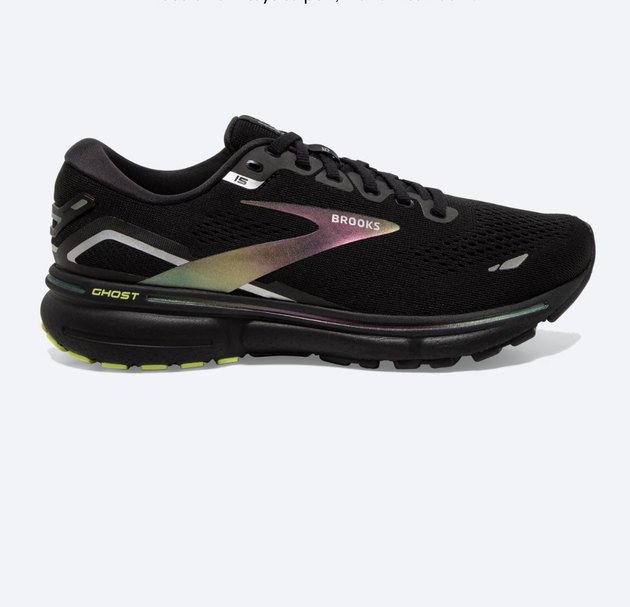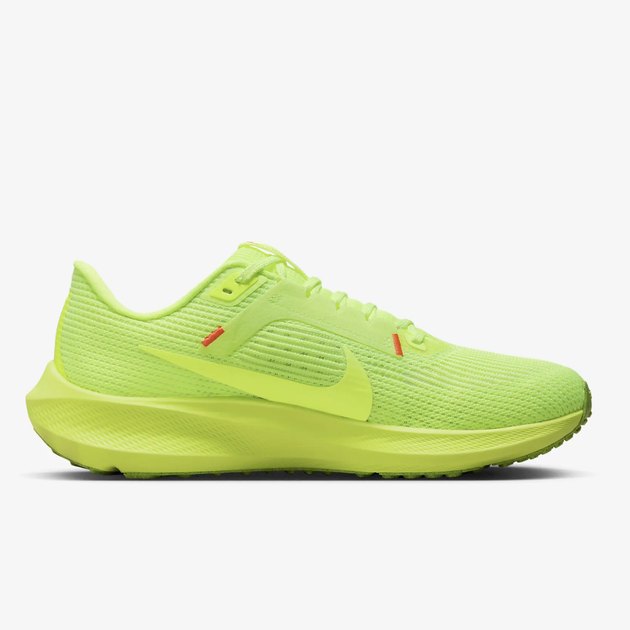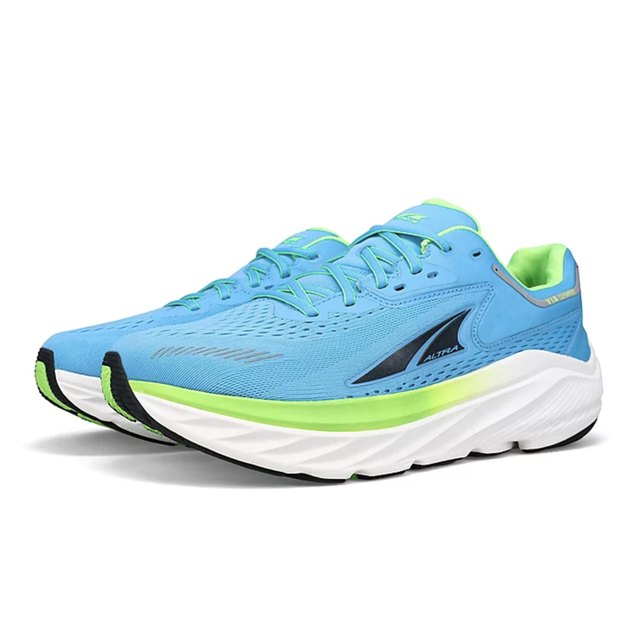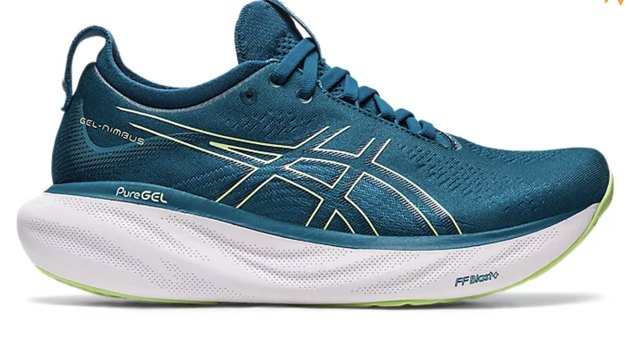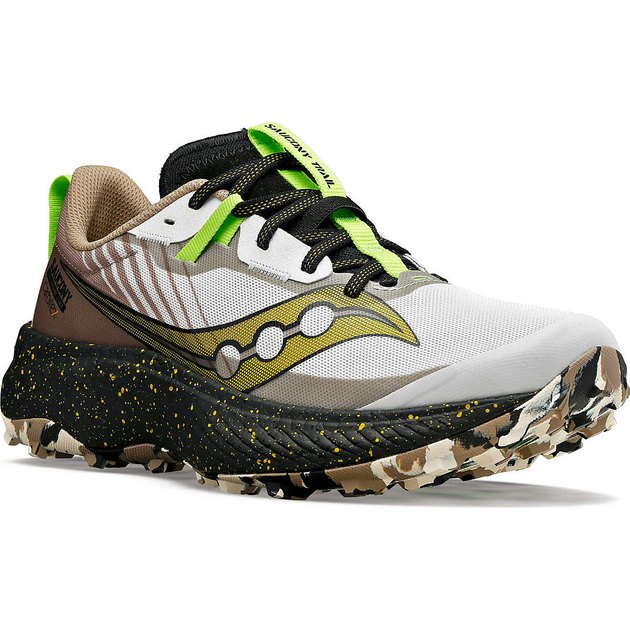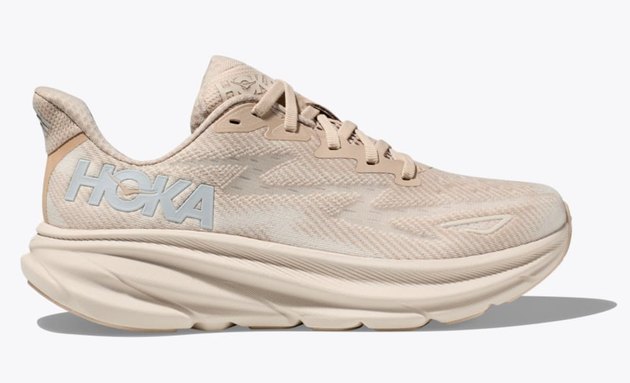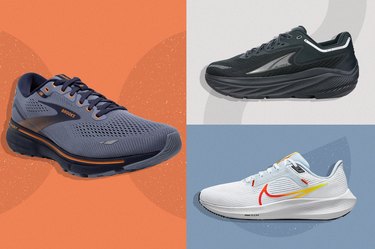
Do you get hit with back pain when running? Switching shoes might help. To help support your whole body on the run, slip on a pair of back-friendly running shoes.
The right running shoes provide cushioning and shock absorption. This can reduce stress in the spine and lower back, both preventing and improving back pain, says Jordan Allison, PT, an ultramarathoner and orthopedic physical therapist at Colorado In Motion.
Video of the Day
Video of the Day
Certain shoes can also redistribute your weight to prevent biomechanical problems that put excess strain on your lower back.
Below, you'll find the best running shoes for back pain.
The Best Running Shoes for Back Pain
- Best Overall: Brooks Ghost 15 ($140, men's and women's, Brooks)
- Best for Flat Feet: Nike Pegasus 40 ($130, women's and men's, Nike)
- Best Minimalist: Altra Via Olympus ($170, men's and women's, Altra)
- Best for Sciatica: Asics Gel-Nimbus 25 ($160, men's and women's, Asics)
- Best for Trail Running: Saucony Endorphin Edge ($200, men's and women's, Saucony)
- Best for High Arches: Hoka Clifton 9 ($145, men's and women's, Hoka)
How We Chose
With input from two running experts, we've narrowed the field to bring you the best running shoes for back pain. They offered product recommendations and outlined key features to look for in a pair of shoes. We selected products that met certain criteria, including:
- Arch support
- Cushion level
- Comfort
- Price
Why Are Certain Shoes Marketed to Men or Women?
Manufacturers typically market shoes according to gender, so we have listed both women’s and men’s picks below according to the language used by the brands.
However, the main difference between most men’s and women’s shoes is the shoe width and size. In some cases, men’s shoes are built to support greater weights. So people with bigger bodies may want to opt for men’s versions, whereas people with smaller bodies may prefer women’s versions. We encourage everyone to shop according to their personal preferences rather than feel restricted by marketing lingo.
1. Brooks Ghost 15
"[Brooks'] Ghost shoes are some of the best shoes on the market for a variety of reasons," says Lalitha McSorley, a physiotherapist who treats runners at Brentwood Physiotherapy in Alberta, Canada.
Not only are they designed to absorb the high-impact forces associated with running, thus preventing excess stress from traveling through the lower extremities and into your spine, but "they are incredibly comfortable," she says.
The brand's best-selling running shoe has been recently updated to offer lighter-weight cushioning in the midsole. You'll get a plush, comfy ride with less bulk.
2. Nike Pegasus 40
If you have flat feet — a condition where one or both feet have little to no arch — you may be guilty of overpronation. This is where your feet roll inward when you walk or run, causing biomechanical problems and excess stress in other parts of your body, such as your knees, hips and back.
"The repeated stress can lead to back pain or worsen existing back pain," McSorley says.
Finding a pair of running shoes designed for people with flat feet may help. The Nike Pegasus provides extra cushioning on the inner edge of the shoe, which helps distribute your weight evenly and support your arches, McSorley says.
This shoe also provides ample cushioning around the midsole to absorb force with each step.
3. Altra Via Olympus
If you prefer a more natural-feeling running shoe, consider Altra your go-to. This minimalist running shoe brand is known for its zero-drop design and foot-shaped footbed, which gives your toes more space to sit naturally. (Zero-drop means there's no difference in the elevation between your toe and your heel.)
For runners with back pain, Allison recommends checking out the brand's Via Olympus shoe, "which has been designed to offer more cushion and support for runners of all types."
Heads up that if you're not used to zero-drop shoes, it can take some time to adjust — so don't start racking up the miles on these without a break-in period, or your back pain will turn into calf pain, too.
4. Asics Gel-Nimbus 25
Sciatica is a common nerve condition that affects runners. When the sciatic nerve is inflamed, it can cause pain in your lower back, buttocks, legs and toes. If you have sciatica, give the Asics Gel-Nimbus a try.
"They are extremely comfortable and provide great arch support," McSorley says. As one of the best running shoes for lower back pain, the maximal cushioning and arch support help reduce the impact forces that travel through your lower extremities and into your back, which will be useful if you have sciatica, she adds.
These are also lightweight and boast a breathable mesh upper, so you can stay light and dry mile after mile.
5. Saucony Endorphin Edge
While these trail running shoes are a bit pricier than other options, they're a must for trail lovers with back pain. The Saucony Endorphin Edge has great arch support and cushioning, which helps reduce the impact on your lower back, McSorley says.
"And the grip on the bottom is amazing," she adds. The outsole is made of a tacky rubber that gives you great traction when combined with the 4mm lugs.
6. Hoka Clifton 9
Hoka running shoes are known for the degree of cushioning they provide, "and may be a great option for runners with low back pain," Allison says.
If you also happen to have high arches — the opposite of flat feet — the brand's Clifton is a good pick. It offers the perfect balance of cushion and stability to support your arches and prevent them from collapsing with each step.
The Clifton has also received the American Podiatric Medical Association (APMA) Seal of Acceptance, which recognizes products that are beneficial to foot health.
What to Look for When Shopping for Running Shoes for Back Pain
1. Rigid Sole With Arch Support
Runners with back pain may appreciate a more rigid sole, "as they provide better stability to the foot and ankle, which can help protect your spine from strain," McSorely says.
To test the sole, try to bend it in half where the foot arch would be. If you can bend it all the way, the sole may be too flexible.
Finding a running shoe with the right amount of arch support will also help you absorb shock and reduce stress.
"It's really important to find a pair of running shoes that complement your foot's natural arch, otherwise you won't feel supported when running," McSorely says.
As runners require different levels of arch support, your best bet for finding the right fit is to visit a specialty running store for recommendations. Just make sure you point out your existing back pain.
2. Cushioning
Shoes with more cushioning in the midsole and heel may provide better shock absorption. But the ideal amount of cushioning varies from runner to runner, and some runners may actually feel better if they switch to a shoe with less cushioning.
Ultimately, the best running shoes for you are the ones that are the most comfortable. The only way to determine how much cushioning you find comfortable is to test several pairs of running shoes.
